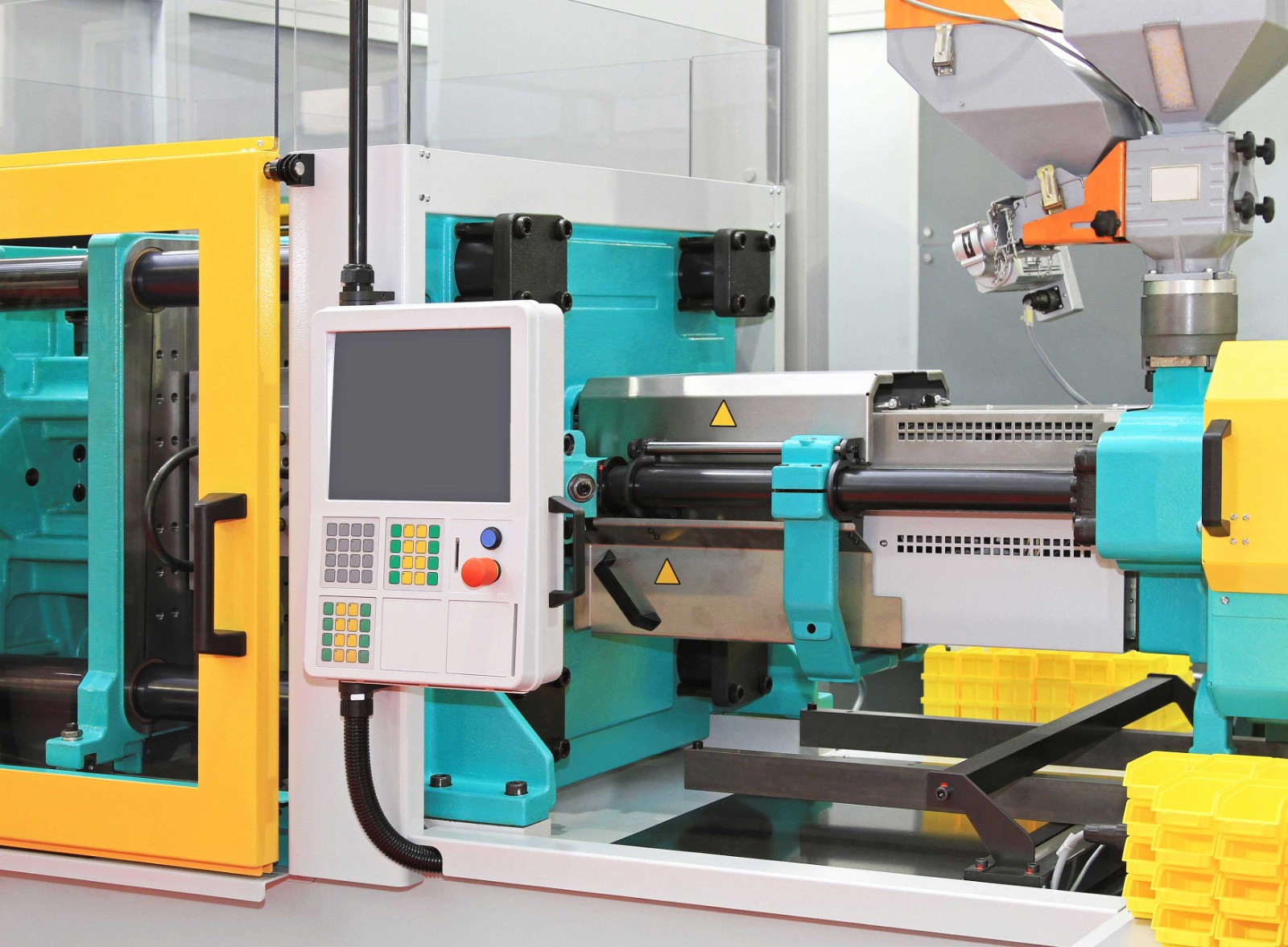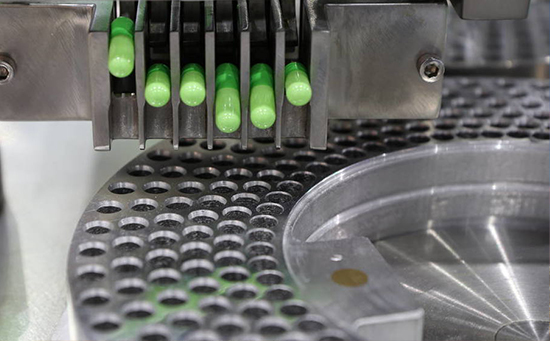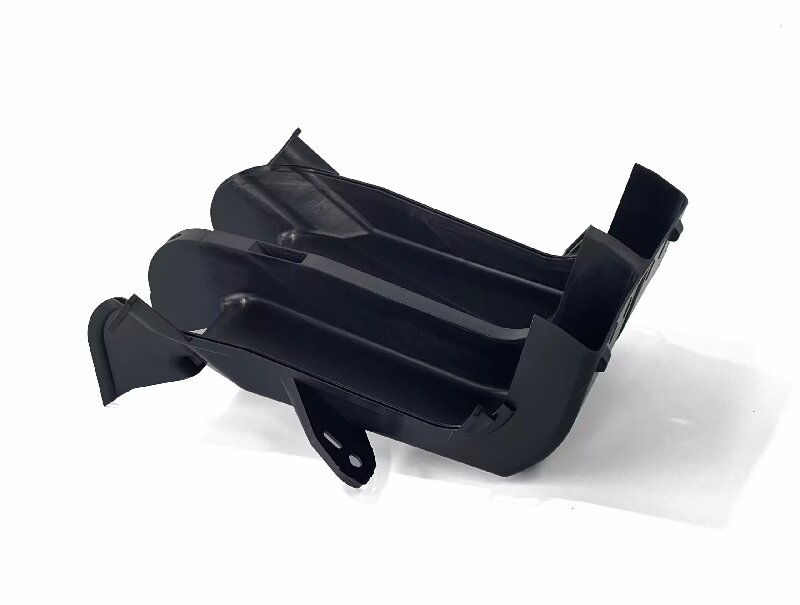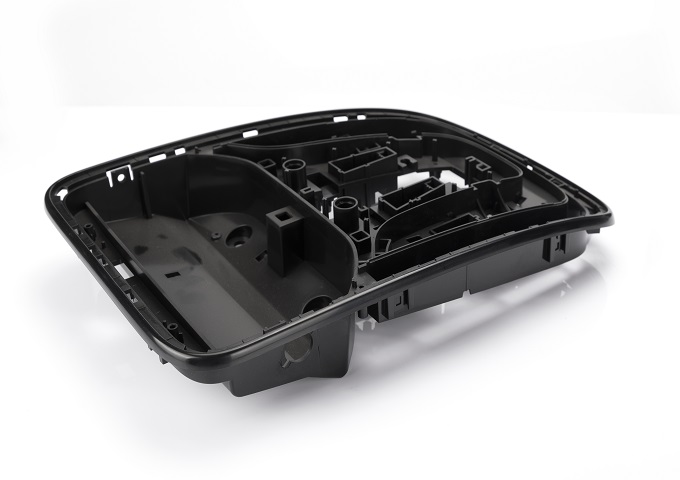Injection Molding Services
Our Injection Molding Services
Custom injection molding services for plastic prototypes and on-demand production parts. Get free injection molding quotes and design feedback within hours, with short lead times and competitive pricing.
●Advanced Equipment & Cost-Effective Price
●More than 10 years experience in injection molding
●ISO 9001 & ISO13485 Certified Factory
●Rapid Tooling Production as fast as 2 weeks
●Provide Free DFM Report within 12 Hours
● Instant Injection Molding Quotes

Our Robust Injection Molding Capabilities
30t-1800t
Molding Machine
12
Surface Finishes
0pc
MOQ
0.05mm
Tolerances
Our Injection Molding Processes
NOBLE's custom injection molding services are ideal for making competitively priced and high-quality molded parts in fast lead times, from plastic prototyping to production molding. Significant manufacturing facilities with powerful, precision machines ensure that the same mold tools are used to create compatible parts. Even better, we provide free expert consultation with every injection molding order, including mold design advice, material and finish selection for end-use applications, and shipping methods.

Injection Mold Tooling
With our experience and advanced machinery, we excel at designing and manufacturing a series of plastic injection molds adjusted to your tolerance and cost.

Plastic Injection Molding
Our plastic injection molding process uses precise machinery to shoot molten resin into a mold to become a final production-grade thermoplastic part.

Overmolding
Covering plastic, metal, and rubber over each other via chemical bonding, our overmolding reduces assembly time and gives our parts greater strength and flexibility.

Insert Molding
Insert molding is the process of molding thermoplastic material around a preformed component to create a finished part that incorporates multiple materials.
What is Injection Molding?
Injection molding, also known as injection molding, is a molding method of injection and molding. The advantages of the injection molding method are fast production speed, high efficiency, automatic operation, various designs and colors, simple to complex shapes, large to small sizes, accurate product sizes, and easy replacement of products, and complex conditions. In parts, injection molding is suitable for mass production, complex shape products, and other molding processing fields.

The machine feeds the raw material into the mold itself, which is the negative impression of the final part, and it consists of two parts: the injection (A) mold and the ejection (B) mold. The space between the two parts is the mold cavity where the material is injected.

While capable of producing many parts, injection molds have some design limitations. Plastic injection molded parts must have narrow walls. They should avoid overhanging features and have some degree of the draft (tapered edges) so that the molded part can be released from the mold.
Injection molding is mainly used for plastics, especially thermoplastics. Thermoplastics are polymers that soften at high temperatures (at which point they are free to inject into molds) and then return to a solid state after cooling. Injection molding also applies to thermoset plastics, which can solidify into a solid but cannot melt back into a liquid. Less common are elastomers. This method is suitable for the mass production of parts with complex shapes and is one of the essential processing methods.

How Does Injection Molding Work?
Injection molding is the most popular manufacturing process for producing plastic parts. Injection molding is the most popular manufacturing process for producing plastic parts. Injection molding machines, using raw plastic and a variety of molds, can make many different parts, large or small, durable or disposable, for many industries and applications. So how does injection molding work?

The machine feeds the raw material into the mold itself, which is the negative impression of the final part, and it consists of two parts: the injection (A) mold and the ejection (B) mold. The space between the two parts is the mold cavity where the material is injected
Injection molding is a forming process - injection molding is a forming process - as opposed to subtractive (cutting) techniques such as CNC machining or additive processes such as 3D printing, which use a mold as the forming device. The method applies to materials such as thermoplastics, which are heated until they reach a molten state and then injected into a metal mold, where they cool and form the shape of the inside of the mold or cavity.

Injection Molding Process: The injection molding process can be divided into four stages: melting the material, injecting it into the mold, cooling the material (or allowing it to cool) until it hardens, then ejecting the final part from the mold. Put simply:

Advantages of Injection Molding
Injection molding is the best option for mass-producing plastic parts. After all, there's a reason why so many manufacturing companies around the world use it to produce precision parts. NOBLE engineers summarize the following six advantages of using injection molding technology:

Efficiency
The mold injection process is highly efficient, allowing large orders to be produced quickly.

Superior detail
Injection molding is one of the most affordable ways to manufacture large quantities of parts, especially for bigger production runs. Even though designing and creating the mold can take time, the process then becomes very affordable and efficient.

Affordability
Fast and efficient production ensures a low cost per part, while high production volumes produce further economies of scale. Aluminum, a cost-effective and readily available material, can be used for injection mold tools to control costs.

High-volume production
Injection molding with steel molds can facilitate the production of parts in the millions.

High tensile strength
Injection-molded parts may be reinforced by adding fillers into the liquid resin, improving tensile strength.

Ready-to-go finish
With the proper treatment, injection-molded parts come out of the mold with a smooth finish that requires no further refinement.
Our Injection Molding Procedure
NOBLE's staff takes your order needs, from quotation to tooling, as our machines and efficient team ensure you receive your tooling and parts within scheduled lead times. The workflow usually looks like this:

Request Instant Quote
From the moment we receive your inquiry email, our professional engineers will provide a response within 24 hours to ensure a smooth process.

Engineer Evaluation
To ensure we can produce functional molds, we conduct a feasibility review of your design to ensure we can meet the requirements before commencing production.

Mold Flow Analysis
Predictive modeling software helps us understand how the molten material moves and acts within the mold, which helps us make improvements.

Mold Tooling Production
Using your preferred materials enables us to make mold tooling that is of high quality and can readily fit your applications.

Sample Inspection
Sampling will be delivered for you to review prior to manufacturing plastic parts to ensure precision and quality.

Low Volume Production
After the trial production phase, we begin batch production, which uses powerful machining to manufacture parts at fast rates to save on time and costs.

Strict Inspection
We follow international tolerance standards to ensure our parts meet your parameters.

Delivery
As our team handles packaging to secure our parts neatly for transport, we partner with logistics companies to schedule a timely delivery to your region.
Injection Molding from Prototyping to Production

Injection Molding Prototypes
NOBLE engineers use advanced prototyping tools to easily obtain design feedback and verification. Create low-volume plastic molded parts with outstanding injection molded prototypes. NOBLE focuses on making prototype molds in a few days to ensure you perform functional tests and verify market interest. Help you reduce project risk before full-scale production of parts, and give you strong project support.

Production Tooling
We manufacture high-quality production tooling for high-volume plastic part production. Our production tools are made from high-strength, durable tool steel materials suitable for producing hundreds of thousands of parts. We can vary materials and construction methods according to your unique requirements.
Our Injection Molding Tolerances and Standards
| Standards | Description |
| Maximum Part Size | 1200×1000×500 mm 47.2×39.4×19.7 in |
| Minimum Part Size | 1×1×1 mm 0.039×0.039×0.039 in |
| Part to Part Repeatability | ±0.1 mm ±0.0039 in |
| Mold Cavity Tolerances | ±0.05 mm ±0.002 in. |
| Available Mold Types | Steel and aluminum tooling. Production grade we provide: Under 1000 cycles, under 5000 cycles, under 30,000 cycles, and over 100,000 cycles |
| Machines Available | Single cavity, multi-cavity, and family molds, 50 to 500 press tonnage |
| Secondary Operations | Mold texturing, pad printing, laser engraving, threaded inserts and basic assembly. |
| Inspection and Certification Options | 15 business days or less for most orders, 24/7 quotation response |
| Lead Time | 15 business days or less for most orders, 24/7 quotation response |
Class of Injection Molding Mold
We design and manufacture precise custom injection molds at NOBLE using premium materials. Our process ensures unrivaled consistency and repeatability with fast lead times and affordable prices. EveryPlastic Injection Molded part we manufacture complies with international standards. We provide durable and reliable mold tooling from one-off projects to low-volume and production tooling.
| Mold Class | Purpose | Shot Life | Tolerance | Lead Time |
| Class 105 | Prototype Testing | Under 500 cycles | ± 0.02mm | 7-10 days |
| Class 104 | Low-volume Production | Under 100.000 cycles | ± 0.02mm | 10-15 days |
| Class 103 | Low-volume Production | Under 500.000 cycles | ± 0.02mm | 10-15 days |
| Class 102 | Medium-volume Production | Medium to high production | ± 0.02mm | 10-15 days |
| Class 101 | High-volume Production | Over 1,000,000 cycles | ± 0.02mm | 10-18 days |
Materials for Injection Molding
These are common molded plastics offered by our injection molding services. After knowing the basics of materials such as common grades, brands, advantages, and disadvantages, choose the appropriate injection molding material according to your application requirements.

Tooling Materal:
Before injection molding process starts low or high-volume production, a high tolerance CNC machined tooling is needed. Most commonly used materials include:
| Tool Steel: | P20, H13, S7, NAK80, S136, S136H, 718, 718H, 738 |
| Stainless Steel: | 420, NAK80, S136, 316L, 316, 301, 303, 304 |
| Aluminum: | 6061, 5052, 7075 |

Plastic Materials:
Plastic injection molding service comes with a wide range of materials with different properties, including impact strength, rigidity, thermal resistance, chemical resistance, etc.
| ABS | Nylon (PA) | PC | PVC |
| PU | PMMA | PP | PEEK |
| PE | HDPE | PS | POM |

Additives and Fibers
Standard plastic materials may not meet custom injection molding parts requirement. In this case, additives and fibers can be added to improve aesthetic and functional properties, providing additional features for your injection molded parts.
| UV | absorbers | Colorants |
| Flame | retardants | Glass fibers |
| Plasticizers |
Surface Finishes of Injection Molding
Injection molding includes injection mold tooling, plastic injection molding and more. The surface treatment of the mold is usually completed during the production process. After the injection molding is completed, we will carry out certain surface treatments on the finished product as per your requirement.
| Name | Description | |
 | Glossy | A grade finishes are made using a diamond buffing process and yield shiny and glossy surfaces on injection molded parts. |
 | Semi-glossy | B grade finishes use grit sandpaper to produce parts with a slightly rougher finish than grade A parts. Custom molded plastic parts that undergo B grade finishing have a matte surface texture. |
 | Matte | C grade finishes use grit sanding stones to produce a rough, uneven surface. Injection plastic parts that undergo C grade finishing have a matte surface texture. |
 | Textured | D grade finishes use grit and dry glass beads or oxide to produce a very rough textured finish. Depending on the type of material used, products can have a satin or dull finish. |
Why Choose NOBLE for Custom Injection Molding Services
Injection molding is an excellent choice for the mass production of plastic parts. Every year, so many high-tech companies worldwide choose NOBLE for injection molding parts processing. What makes so many customers choose us?

No MOQ
No minimum order requirement helps move plastic molded parts from design to production in a fast turnaround and supports your on-demand molding manufacturing needs with reduced manufacturing cost.

Consistency and High Quality
Owing certified factories, conducting in-process inspections and dimensional verification after production, guarantee the custom molded parts are consistent in quality regardless of the complex shape with high precision.

High Efficiency
With certified domestic factories and a strong supply chain system, we accelerate the product development cycle and bridge the production of your overmolded parts as fast as possible.

Overmolding Specialists
Working with our experts having 10+ years of experience in the injection molding industry, efficiently complete a turnaround from prototyping to production.
Work with Us in 4 Simple Steps Only
With many years of manufacturing experience, NOBLE offers the best solutions for all rapid prototyping and low-volume manufacturing needs. We streamline the innovation cycle into four simple but effective steps.

Upload Your Design
Just simply upload your CAD files and submit RFQs with clear information online.

Receive Design Analysis
We'll send you design for manufa-cturability analysis and transparent pricing.

Start Manufacturing
Our experts will produce your parts with the required technologies and materials.

Receive Your Parts
Your parts will be delivered to your door directly with stringent deadlines.
Injection Molding Parts Gallery
From prototyping to injection molding for customers at competitive prices, which showcases some of our finished high-quality consistent-performance injection molded parts, and trust us to create your injection molding project according to your exacting specifications.
See What Our Customers Say About Us
Customer feedback holds more weight than a company claims – take a look at what our valued customers have to say about our injection molding services.
Injection Molding Service for Various Industries
Since injection molding can achieve high precision at good manufacturing speeds without changing the material's structure, it is becoming more familiar with the ever-expanding range of machines, control systems, and tools used for injection molding. NOBLE is committed to providing precision machining services for all walks of life, our injection-molded precision parts are found in all walks of life, including.

Oil & Gas
NOBLE's experts have a comprehensive knowledge of injection molding in the oil and gas industry, and the guarantee of high precision provided by state-of-the-art injection molding machines.

Tool & Die
NOBLE may be your best choice whether you need precision lathe work or multi-axis CNC milling for high-quality tools and dies toaccurately function in the machinery.

Automotive
Our low-volume manufacturing services is the ideal manufacturing solution for on demand automotive parts.

Aerospace
The durability and precision that our precison manufacturing services provide meets the sophisticated needs the different phases of the aerospace industry required.

Medical Devices
Medical supplies manufacturers, tech startups, and research labs benefit significantly from the prototyping solutions we provide.

Robotics
Our industrial-grade robotics prototyping and parts manufacturing services aid in the continuous evolution of the robotics market.
If you are looking for an injection molding manufacturer or CNC machine shop to make low, medium, or high-volume production, NOBLE is ideal. Our well-trained and experienced employees manufacture parts according to drawings on modern injection molding machines with the highest precision and processing quality in all sizes. In addition, we provide professional design considerations for your injection molding projects.
Want to get the most professional and fastest service for your injection molding project? Upload your CAD file and get a quote today![Get Quote]
Injection Molding FAQ
- Q
What plastics can you use with injection molding?
AInjection molding can use almost any type of plastic, and they can also be combined. This unrivaled versatility is what makes injection molding so popular and used in some of the most demanding industries in the world. You can view the selection of materials available and complete our injection molding services on this page.
- Q
What is the process behind injection molding?
AThe plastic pellets are melted and then inserted in liquid form into the mold tool, where it cools and takes the required shape. The process allows for high precision and tight tolerances because it can be replicated exactly each time.
- Q
Why should I use injection molding?
AInjection molding is one of the most affordable ways to manufacture large quantities of parts, especially for bigger production runs. Even though designing and creating the mold can take time, the process then becomes very affordable and efficient.
- Q
How quickly can you produce parts using injection molding?
AThe first step in our injection molding service is to design the injection mold tool. How long this takes will depend on the complexity of your project. The usual timeline can be as short as a week and as long as a couple of months.
- Q
What’s the process for injection mold making?
AOur mold-making process consists of 6 steps:
Step 1: Engineers analyze the drawings: Free detailed production DFM reports for further feasibility analysis.
Step 2: Production Arrangement: Determine all requirements and arrange the production.
Step3: is mold production: put the mold into production, and provide the Tooling Schedule form of the whole cycle for customers to check the process at any time.
Step 4: Free sample test: put the mold into production, and provide the Tooling Schedule form of the whole cycle for customers to check the process at any time.
Step 5: Mass production: After the customer confirms that the sample is qualified, the follow-up production will be officially carried out.
Step 6: Save the modeThe product will be shipped after the production is completed and the quality inspection is pas—cleaner and store molds for the next round of part production.
- Q
What are the typical tolerances for injection molded parts?
ATolerances are very important and if not properly specified and controlled, assemblies will fail. NOBLE uses the ISO 2068-c standard for injection molding tolerances unless tighter tolerances are required.
- Q
How long does it take to make molded parts?
AAfter placing an order, it takes about 35 days for mold design and production, and 3-10 days for molded parts production.
- Q
8.How much does your injection molding service cost?
AGenerally, we generate the quote after our platform must have considered several factors, including the size of the component, mold complexity, number of injection cavities, materials, post-processing needs, etc.

 EN
EN  AR
AR NL
NL FI
FI FR
FR DE
DE HI
HI IT
IT JA
JA KO
KO NO
NO PL
PL PT
PT RU
RU ES
ES ID
ID HU
HU TH
TH MS
MS











